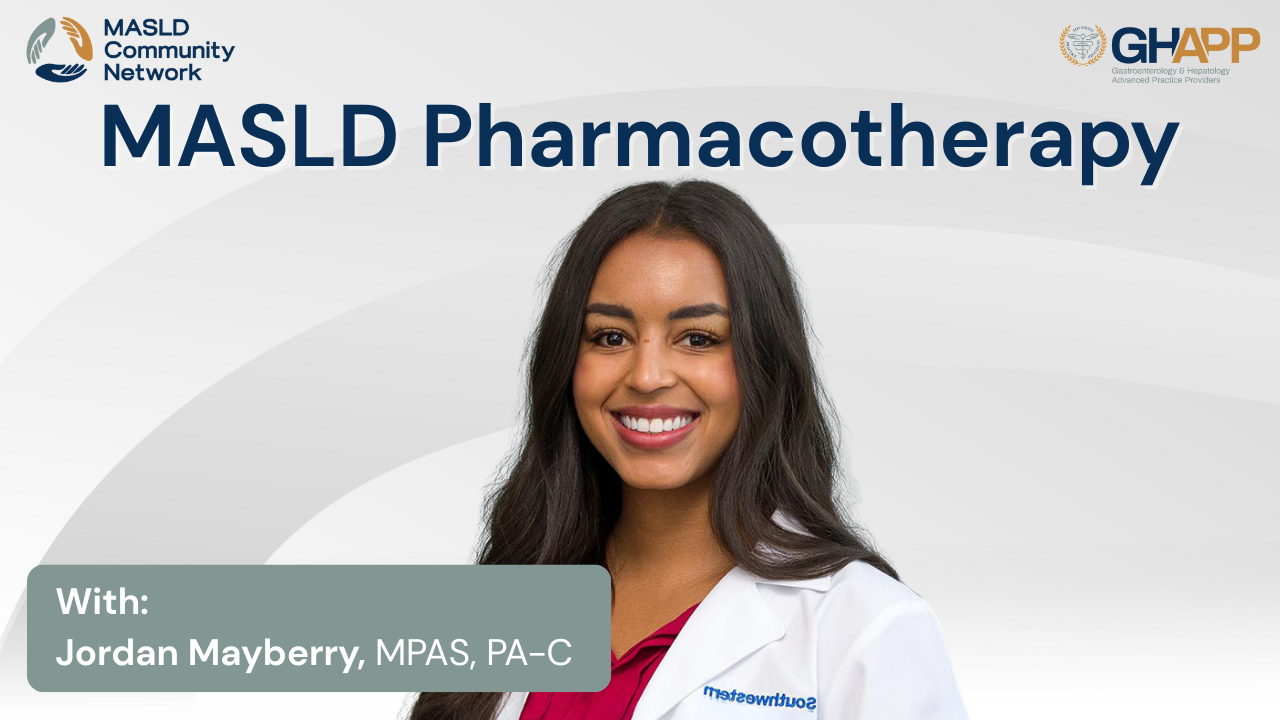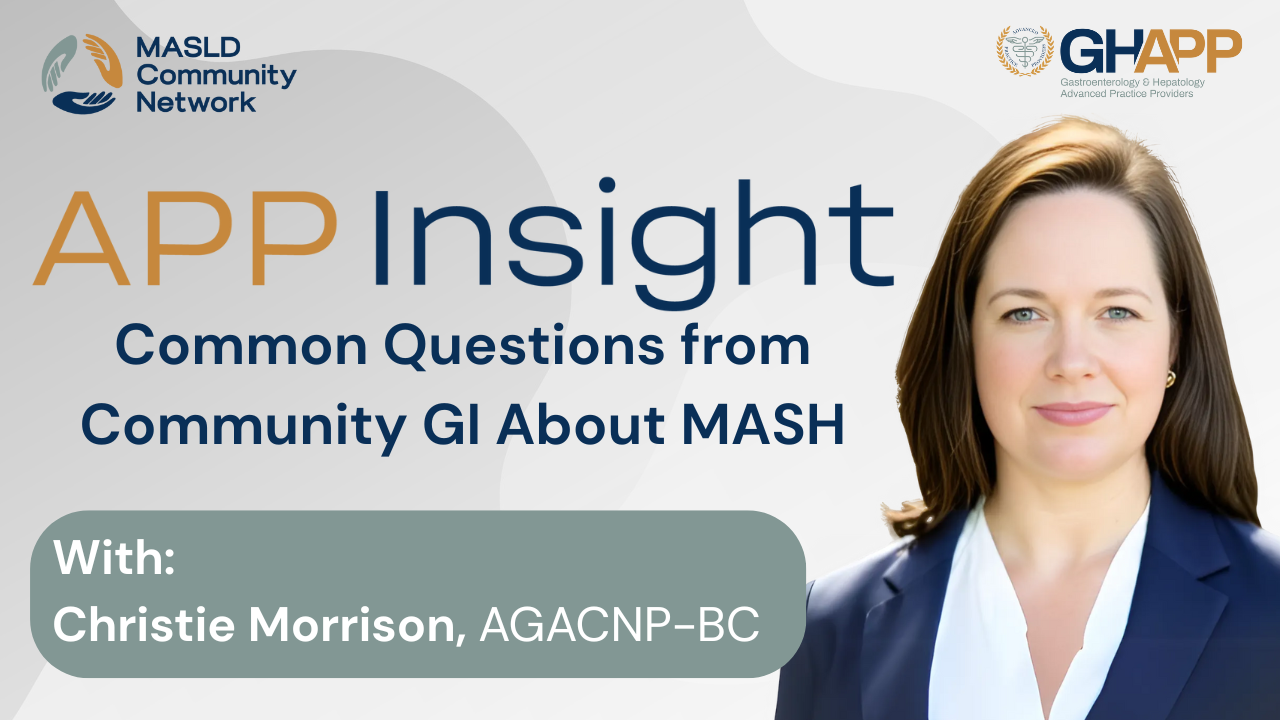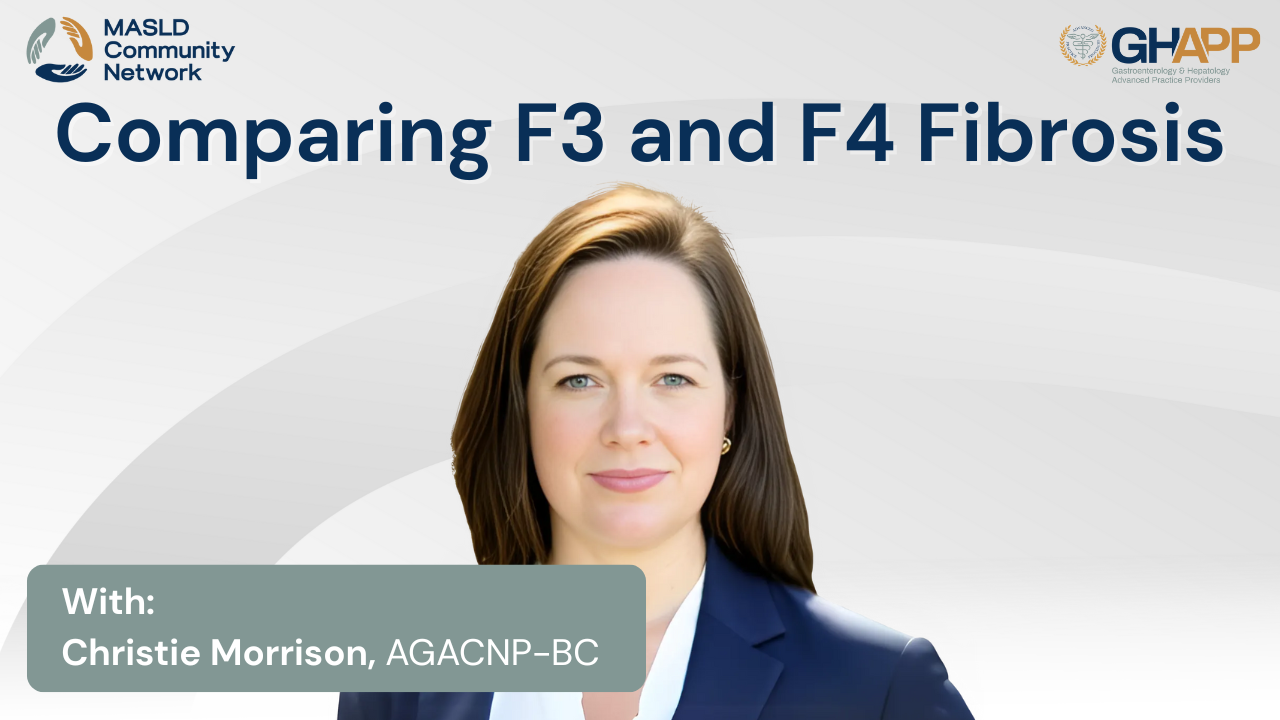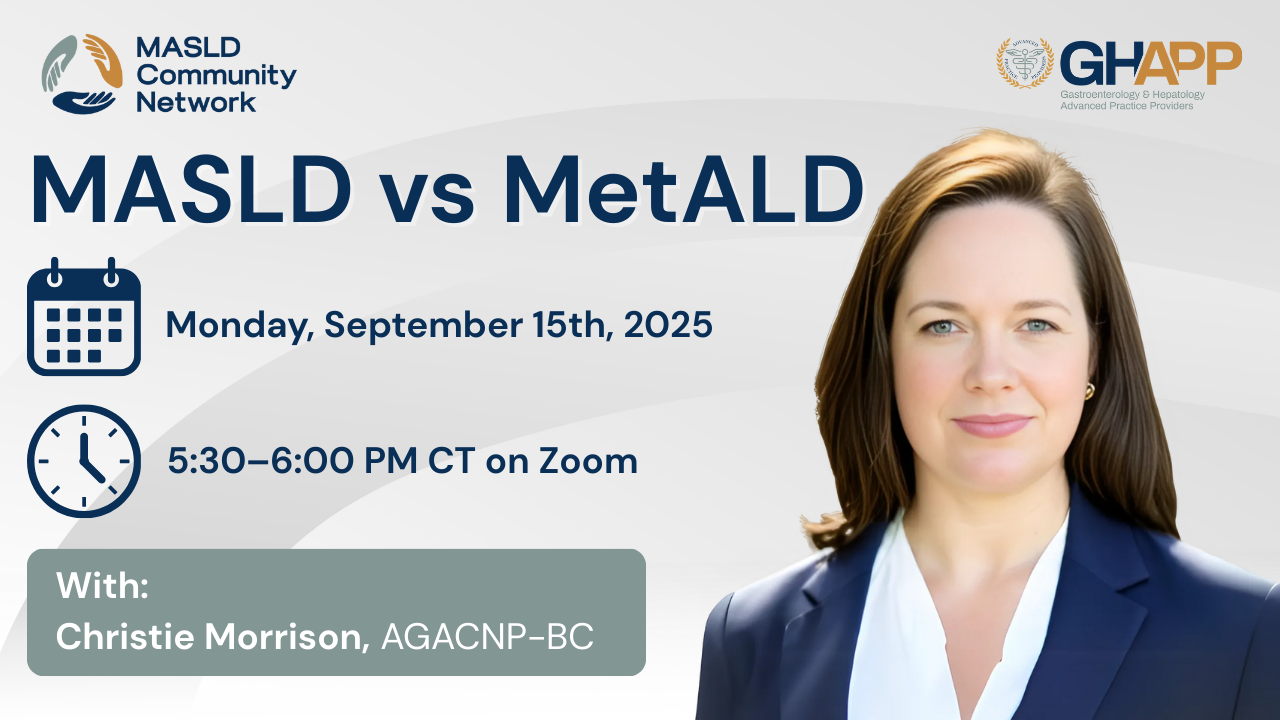
Christie Morrison
AGACNP-BC
Location : San Antonio, TX, USA
BIO
Christie Morrison is a Board Certified Adult Advanced Practice Nurse and Lead APP at Oshi Health, a digital digestive health practice and IBD APP at Texas Digestive Disease Consultants in San Antonio, Texas. She strives to improve the lives of patients with chronic gastrointestinal conditions through a multidisciplinary approach. She has worked in various roles as a GI advanced practice provider, including inpatient, outpatient clinic, and telehealth since 2015.
Mrs. Morrison is currently an active member of the American College of Gastroenterology where she is serving on the Editorial Board. She is also a member of several GI societies, including TSGE, AGA, ASGE, and GHAPP. Christie was recently honored with the ACG APP Clinical Excellence Award for community practice. She collaborates with industry partners and GI colleagues to enhance education and engagement for APPs working in Gastroenterology.
She strives to improve the quality of life and better patient outcomes in all chronic GI conditions and believes that providing resources to her peers through education can help her achieve this goal.
MASLD-MASH Content Featuring Christie

MASLD Pharmacotherapy With Jordan Mayberry

Join Jordan Mayberry, MPAS, PA-C from UT Southwestern, for an insightful session from the GHAPP MASLD/MASH Community Network focused on the evolving landscape of pharmacotherapy in MASLD and MASH. This presentation explores evidence-based strategies for treating metabolic dysfunction–associated steatotic liver disease (MASLD), with an emphasis on weight loss, diabetes management, and liver-directed therapies. Jordan breaks down key data on GLP-1 receptor agonists, SGLT2 inhibitors, Vitamin E, pioglitazone, and highlights the latest clinical evidence supporting the use of Resmetirom—the first FDA-approved treatment for MASH with stage 2 or 3 fibrosis. Learn how these therapies fit into hepatology practice, including clinical considerations, side effect management, and patient selection. Stay up to date on ongoing research, treatment duration, and real-world application of these new therapies. Don’t forget to register and join the GHAPP MASLD/MASH Community Network for continued education and access to valuable resources.
Watch Now

Common Questions from Community GI About MASH

In this insightful video, Christie Morrison, a local advanced practice provider with the GHAPP MASLD/MASH Community Network, answers two of the most frequently asked questions from community GI providers: when to refer patients with MASH to a transplant center and how to evaluate liver fibrosis when FibroScan® isn’t accessible. Christy emphasizes the importance of using non-invasive testing (NITs)—including FIB-4 and ELF (Enhanced Liver Fibrosis) scores—to help identify patients with F3 fibrosis, who are at higher risk for rapid progression to cirrhosis and hepatocellular carcinoma (HCC). She encourages early referral to transplant hepatology to avoid delays in care, especially given long wait times and the value of multidisciplinary support teams at transplant centers. For clinicians without access to FibroScan, Christy shares practical alternatives such as ordering reflex testing to ELF via major labs and leveraging easy-to-use digital tools like MDCalc for FIB-4 calculation. This episode is a valuable resource for GI providers looking to optimize liver care pathways and prevent late-stage complications in MASLD and MASH patients.
Watch Now

Management of Life Style Modification

This video focuses on the comprehensive management of patients with metabolic-associated steatohepatitis (MASH), emphasizing lifestyle modifications, dietary adjustments, and exercise strategies. Key topics include the importance of addressing risk factors like diet, exercise habits, and alcohol intake, as well as referrals to medically supervised weight loss clinics or bariatric surgery for advanced cases. The speaker highlights the benefits of the Mediterranean diet, intermittent fasting, and avoiding ultra-processed foods while discussing the role of resistance training to combat sarcopenia and maintain muscle mass. Practical advice and tailored recommendations ensure a holistic approach to managing MASH and improving patient outcomes.
Watch Now

Third Step of Life Style Management

This video provides a comprehensive overview of emerging pharmacologic treatments for metabolic-associated steatohepatitis (MASH) and their tailored applications based on patient profiles. Topics include FDA-approved therapies, drugs in advanced clinical trials (such as semaglutide and lanifibranor), and the potential for combination treatments targeting both steatohepatitis and fibrosis. The speaker emphasizes the importance of patient-specific approaches considering metabolic profiles, obesity, and diabetes status, alongside lifestyle interventions. Additionally, the video discusses the evolving interdisciplinary care model and highlights the exciting progress in non-invasive testing and treatment advancements for F2-F3 fibrosis.
Watch Now

Approved Medication for MASH/NASH

This video provides detailed guidance on selecting and monitoring patients for emerging therapies targeting advanced fibrosis (F2-F3) in NASH. Key topics include contraindications for patients with cirrhosis, considerations for concomitant medications, and dose adjustments for statins. The video outlines ideal candidates based on specific thresholds for VCTE, MRE, ELF scores, and other non-invasive tests while emphasizing the importance of ruling out portal hypertension and other liver diseases. It also reviews a stepwise monitoring approach, focusing on tolerability at three months and efficacy assessments at six and twelve months, with an emphasis on histologic and non-invasive test improvements.
Watch Now

Types of Diet for the Treatment of MASLD

This video explores comprehensive strategies for managing metabolic-associated steatohepatitis (MASH), focusing on fibrosis risk stratification, lifestyle modifications, and pharmacologic interventions. Learn about dietary recommendations like the Mediterranean diet, exercise guidelines emphasizing resistance training, and the role of intermittent fasting and processed food avoidance. The video also highlights weight loss targets, diabetes management, and emerging therapies such as GLP-1 receptor agonists and bariatric surgery, all aimed at improving liver health and patient outcomes.
Watch Now

NITs to Identify High Risk MASH Patients

Explore advancements in non-invasive diagnostics and risk stratification for liver fibrosis and MASH. This video highlights tools like FIB-4, transient elastography, and innovative scoring systems (e.g., FAST and Agile) to identify and predict outcomes for high-risk patients. Learn about serum biomarkers, updated guidelines, and the role of lifestyle interventions alongside targeted therapies for managing metabolic risks and advancing care in hepatology.
Watch Now

Comparing F3 and F4 Fibrosis With Christie Morrison

In this expert-led session, Christie Morrison, NP, shares a comprehensive case-based discussion on comparing F3 vs F4 fibrosis in patients with MASH (Metabolic Dysfunction-Associated Steatohepatitis). Through the lens of two real-world clinical scenarios, Christie breaks down the nuanced differences in non-invasive diagnostic tools such as FIB-4, ELF scores, and FibroScan KPA readings, while guiding providers on how to stratify risk, monitor disease progression, and tailor interventions appropriately. Viewers will learn how elevated liver enzymes, declining platelet counts, and steatosis scores influence decision-making in patients with metabolic comorbidities like type 2 diabetes, hypertension, and hyperlipidemia. The session emphasizes evidence-based lifestyle and pharmacologic strategies, including the potential role of resmetirom (Rezdiffra) in F3 fibrosis and why it’s contraindicated in advanced cirrhosis. Learn when to initiate HCC surveillance, how to interpret borderline labs, and the importance of integrating GLP-1s, dietitian referrals, and cardiometabolic care to slow or reverse fibrosis progression. Whether you’re managing intermediate or advanced fibrosis, this educational session provides invaluable insights into optimal MASH care pathways and staging techniques.
Watch Now

NITs: A Practical Overview: Navigating the Basics

In this episode, Christie Morrison breaks down the fundamentals of non-invasive testing (NITs) for evaluating patients with fatty liver disease, including MASLD and MASH. She explains the key differences between steatosis (MASLD) and steatohepatitis (MASH), highlighting how non-invasive tests can replace liver biopsy for staging fibrosis. Christy reviews common tools like FIB-4, NAFLD fibrosis score, Enhanced Liver Fibrosis (ELF) score, transient elastography (FibroScan), and MR elastography, and outlines how to choose the right test based on patient factors such as co-morbidities, geography, access to labs, and imaging availability. The episode also emphasizes the importance of fibrosis risk stratification, interpreting FIB-4 cutoffs, and monitoring liver stiffness or ELF scores after initiating lifestyle or pharmacologic treatment—including newer therapies like resmetirom. This is a must-watch for APPs, GI clinicians, and primary care providers seeking to improve care pathways and outcomes in patients with metabolic liver disease through practical, accessible strategies for fibrosis detection and management.
Watch Now
FAQ's

Common Questions from Community GI About MASH

In this insightful video, Christie Morrison, a local advanced practice provider with the GHAPP MASLD/MASH Community Network, answers two of the most frequently asked questions from community GI providers: when to refer patients with MASH to a transplant center and how to evaluate liver fibrosis when FibroScan® isn’t accessible. Christy emphasizes the importance of using non-invasive testing (NITs)—including FIB-4 and ELF (Enhanced Liver Fibrosis) scores—to help identify patients with F3 fibrosis, who are at higher risk for rapid progression to cirrhosis and hepatocellular carcinoma (HCC). She encourages early referral to transplant hepatology to avoid delays in care, especially given long wait times and the value of multidisciplinary support teams at transplant centers. For clinicians without access to FibroScan, Christy shares practical alternatives such as ordering reflex testing to ELF via major labs and leveraging easy-to-use digital tools like MDCalc for FIB-4 calculation. This episode is a valuable resource for GI providers looking to optimize liver care pathways and prevent late-stage complications in MASLD and MASH patients.
Watch Now











